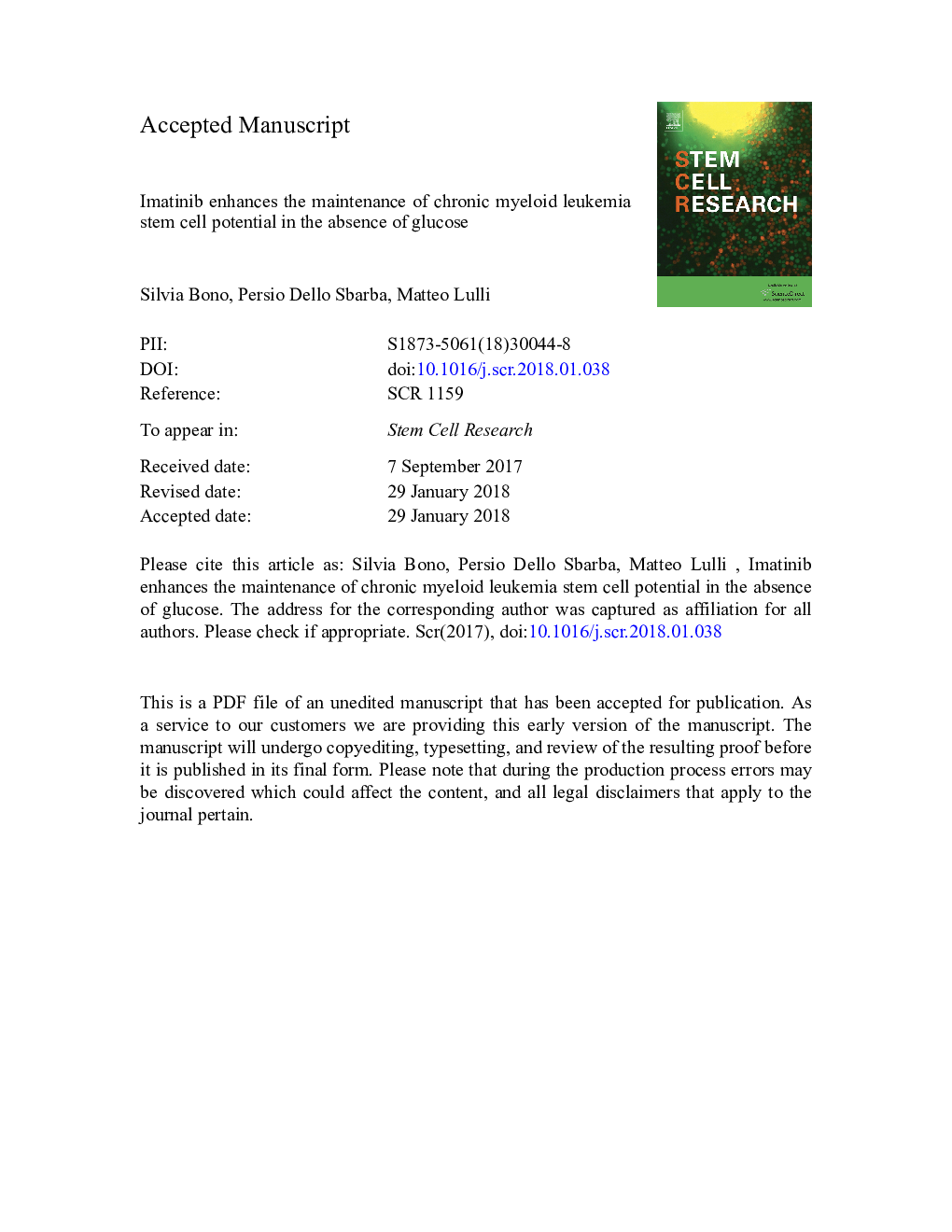| Article ID | Journal | Published Year | Pages | File Type |
|---|---|---|---|---|
| 8425264 | Stem Cell Research | 2018 | 28 Pages |
Abstract
The introduction of BCR/Abl tyrosine kinase inhibitors (TKI), such as imatinib-mesylate (IM), has revolutioned the treatment of chronic myeloid leukemia (CML). However, although extremely effective in inducing CML remission, IM is unable to eliminate leukemia stem cells (LSC). This is largely due to the suppression of BCR/Abl protein, driven by the reduction of energy supply due to oxygen or glucose shortage, in stem cell niches of bone marrow. Here, we investigated whether, in K562 and KCL22 CML cell cultures, glucose shortage induces refractoriness of stem cell potential to IM. In the absence of glucose, IM, while maintaining its detrimental effect on CML cell bulk, actually enhanced colony formation ability and stem cell potential. This was paralleled by an increased expression of the Nanog and Sox-2 stem cell markers. These evidences stress further the importance of developing strategies alternative to TKI capable to target LSC of CML.
Keywords
Related Topics
Life Sciences
Biochemistry, Genetics and Molecular Biology
Biotechnology
Authors
Silvia Bono, Persio Dello Sbarba, Matteo Lulli,
